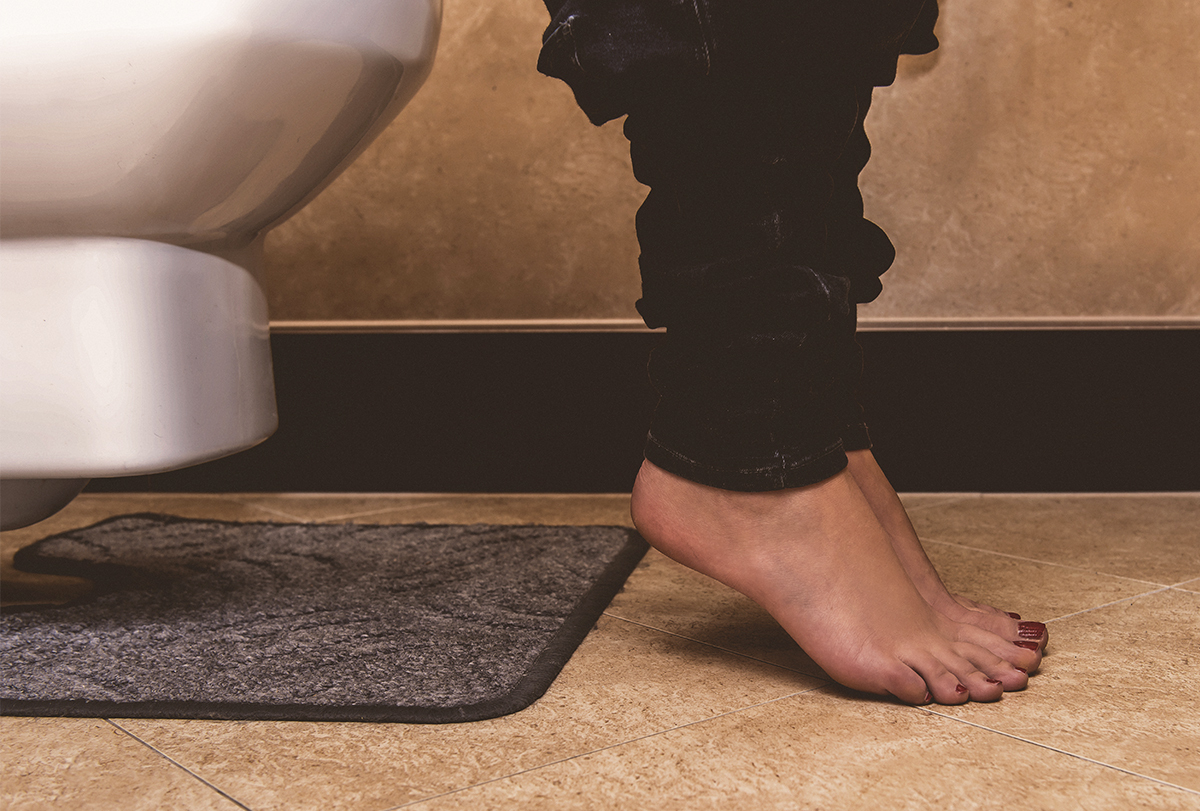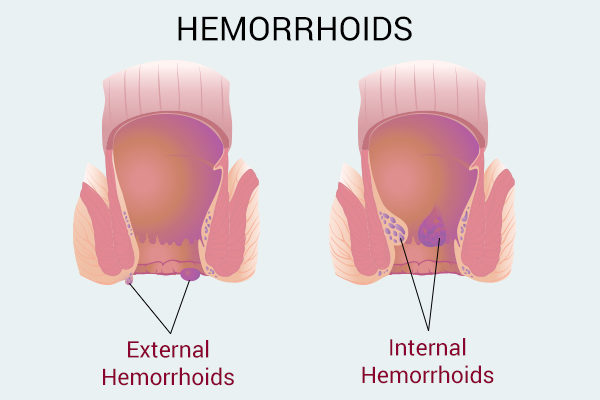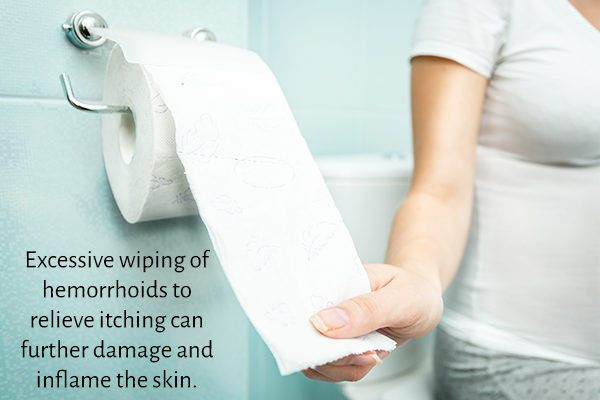In this article:
Hemorrhoids refer to swollen veins in the rectum, which are typically noticed when there is blood during bowel movements.

Hemorrhoids may occur inside your anus (internal) or below the skin around it (external). The irritation and inflammation of the blood vessels generally are due to the excessive pressure placed upon them.
Why hemorrhoids itch might not be a question you can ask nonhesitantly. Hopefully, the following discussion will answer that nagging question.
How Common Are Hemorrhoids?
The true prevalence of hemorrhoids is uncertain. However, in a large survey published in the World Journal of Gastroenterology, 4.4% of the United States population self-reported symptomatic hemorrhoids, and the numbers were equal in men and women.
The peak age range of getting hemorrhoids was between 45 and 65 years, which declines thereafter. (1)
Types of Hemorrhoids

Hemorrhoids are usually one of two types:
1. Internal hemorrhoids
Swelling of the veins are hidden inside the rectum and above the anal opening. Nevertheless, in some cases, the swollen veins may enlarge and distend out of the anus (prolapse), causing severe pain.
2. External hemorrhoids
Inflamed veins are located around the anal opening and are covered by skin. They may develop into bumps or lumps and cause pain when filled with blood. It is easy to mistake them for skin tags, which are extra skin growths around the anus. (1)
Causes of Hemorrhoids
The cause of hemorrhoids is not yet established. It is suspected to occur as a result of undue pressure put on the rectal veins when a person is in an upright posture. Other factors that can contribute to the development of hemorrhoids include:
- Straining during bowel movements
- Old age
- Pregnancy
- Overuse of enemas or laxatives, causing bowel function problems
- Prolonged constipation or diarrhea
- Family history of hemorrhoids
- Sitting for long periods on the toilet
Symptoms of Hemorrhoids
The common symptoms of external hemorrhoids include:
- Bleeding
- Burning
- Itching
- Pain
- Formation of a purple-blue lump near the anus (caused by a blood clot)
The common symptoms of internal hemorrhoids include: (2)
- Blood in bowel movements
- Discomfort
- Feeling of fullness
- Mucus discharge
- Protrusion during bowel movements
It is typical for people not to experience any symptoms while having hemorrhoids. The symptoms may also be confused with those of other health problems. Therefore, it is essential to visit a medical professional for a proper diagnosis.
Why Do Hemorrhoids Itch?

While it may appear weird, this question is highly pertinent and is a common query. Hemorrhoids are a disruption of the skin.
External hemorrhoids have all of the entanglements that your skin at any other body part would have. However, internal hemorrhoids do not have the same complications because they have completely different nerves.
Think of the trauma the hot, humid heat of a southern summer does to exposed skin – it becomes inflamed, red, and painful as a natural response. So, you can just imagine what varicose veins protruding around the anus are subjected to – additional moisture, irritation, and hygiene issues. The itching is a result of these factors.
Hemorrhoid itch is basically your body’s way of asking you to pay attention to it. Do not ignore your body, and do not be ashamed of your hemorrhoids!
It is also vital to note that excessive wiping to relieve itching can further damage and inflame the skin. Moreover, friction caused by clothing and prolonged sitting or walking can contribute to the soreness.
Measures to Relieve Hemorrhoid Itch
The following measures can help prevent hemorrhoids and provide relief from itching:
- Consume a high-fiber diet. (3)
- Stay physically active throughout the day. (4)
- Drink ample fluids.
- Maintain good hygiene.
- Dry your genital area using a cloth towel or unscented toilet paper after every bowel movement.
- Apply nonmedicated talcum powder to the anal area.
- Put a clean cotton gauze on the anus to absorb excess moisture.
- Abstain from scratching the area as it can delay healing.
- Apply OTC hemorrhoids creams or ointments.
- Use suppositories to help relieve the swelling, pain, and itching associated with external hemorrhoids.
However, if these measures do not help improve the symptoms in a week, it is best to consult a doctor for medical help.
ALSO READ: All About Hemorrhoids, Explained by a Colorectal Surgeon
Diagnosing Hemorrhoids
Diagnosing hemorrhoids requires a physical test to examine your rectum and anus for symptoms such as swollen blood vessels. Additionally, the doctor may recommend some tests, including:
- Anoscopy
- Proctoscopy
- Digital rectum examination (DRE)
- Colonoscopy
- Sigmoidoscopy
Other Possible Causes of Anal Itch
Various factors, other than hemorrhoids, can cause an anal itch, including:
- Stool on the skin around the anal opening
- Skin allergy or chemical irritation in the anal area, which may be caused by certain medications and chemicals
- Consuming foods and beverages that irritate the anus, including coffee, tea, spicy foods, milk, alcohol, cola, citrus fruits, chocolate, tomato, and vitamin C tablets
- Skin problems
- Antibiotic treatment, which can disturb the intestinal microflora
When to See a Doctor
Visit a medical professional if you experience any symptoms associated with hemorrhoids or if you experience any new symptoms. Additionally, seek medical help if the symptoms worsen, such as when blood in the stool intensifies.
Final Word
Hemorrhoids, or the presence of swollen veins in or around the rectum and anus, is a common, painful condition. It can cause lumps, itching, bleeding, and great discomfort.
Although most hemorrhoids are not harmful, they should be medically treated. It is essential to visit your doctor if you experience bloody stools or tar-like black stools, whether the cause is hemorrhoids or not.
- Was this article helpful?
- YES, THANKS!NOT REALLY


